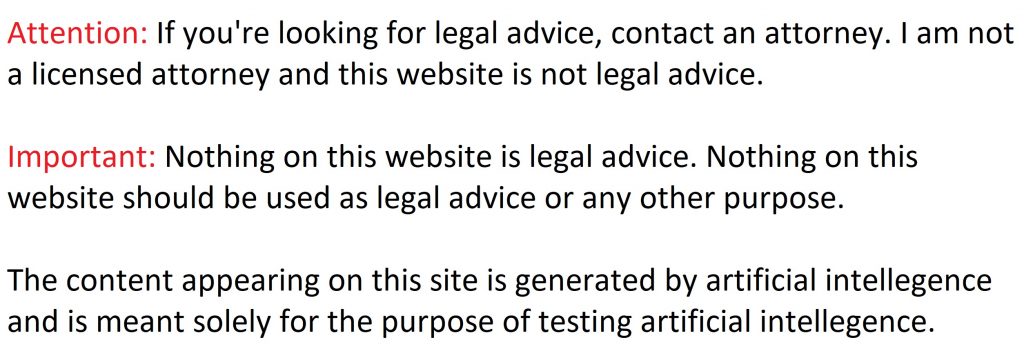
DUI checkpoints (aka sobriety checkpoints) are a topic that many people want answers about. It’s a topic of common concern for people who have experienced a DUI arrest or who have experienced alcohol related accidents. In some cases they may have been driving without a valid driver’s license or experienced what they believe were unreasonable searches without warning signs.
You may have seen things like DUI roadblocks to warn drivers, where drunk drivers are performing field sobriety tests, resulting in their future DUI conviction. These legal topics and many other will be discussed further.
To start, let’s take a look at the Knoxville DUI checkpoint locations to see where they are located and what happened in previous DUI sobriety checkpoints. The Tennessee Department of Safety reported that these locations were a necessity because over a five-year period from 2005-2010 there were more than 36,000 alcohol related car accident deaths in Tennessee during this same time period. In 2010 alone there were 739 fatalities due to alcohol or drug impairment. In 2011 at least six counties had sobriety checkpoints throughout their county including Cumberland County, Coffee County, Dickson County, Loudon County, Sumner County and White County. Interventions have been documented by local police departments including Knoxville Police Department reports on DUI arrests in East Knoxville Checkpoints.
You might ask yourself if a police officer really has reasonable suspicion at one of these areas. You might also ask “are DUI checkpoints constitutional?” Let’s dive into this further.
Are DUI Checkpoints Unconstitutional?
DUI checkpoints are unconstitutional if conducted by police officers who do not have probable cause to stop a vehicle. The United States Supreme Court has ruled that if the primary purpose of the checkpoint is to detect evidence of ordinary criminal wrongdoing, then it violates the Fourth Amendment of the U.S. Constitution. There must be clear legislative intent authorizing sobriety checkpoints, which means that public officials must affirmatively state clearly and often their intention to conduct sobriety checkpoints.
Therefore when you think about it, a law enforcement officer looking for impaired drivers may not always be aligning with the United States Constitution when it comes to DUI checkpoints. However, it is likely that law enforcement agencies are finding ways to make this legitimate according to state law.
Then are DUI checkpoints constitutional? Not necessarily. Law enforcement officials often times simply abide by state laws regarding drunk driving. They will look for their probable cause.
Are DUI Checkpoints Legal in Knoxville?
DUI sobriety checkpoints are legal under Tennessee law as long as all guidelines are followed set forth by state statutes . Tennessee Code Annotated 55-8-101 states the following:
(a) As used in this section, “checkpoint” means a place where a law enforcement officer stops a motor vehicle for the primary purpose of determining whether the driver is operating the vehicle while under the influence of alcohol or another substance that has rendered the driver incapable of safely operating a motor vehicle.
(b) A law enforcement agency may not use a “checkpoint” unless it has first obtained written approval from the executive director of the department of safety, or if there is no executive director, then by the commissioner of safety or designated subordinate. The department shall develop guidelines for establishing criteria pursuant to which approval will be granted. The location of any established checkpoint must have been approved as being an appropriate site for such purpose by both the local legislative body and sheriff having jurisdiction at the location. These guidelines shall include, but not be limited to, providing an opportunity for public awareness of the date and times of a checkpoint through advertisements in advance at least once each week for three weeks in a daily newspaper having general circulation throughout the area where the intended checkpoint is to be located. The department will make all approved applications available on its website. The law enforcement agency establishing any other checkpoint or roadblock must have first obtained written approval from the executive director, commissioner of safety or designated subordinate as described herein for such purpose.
Do a search online to read more. The point here is that in the state of Tennessee these things are not a light matter. Drunk drivers getting arrested may undergo severe hardship including license suspension and much more.
If you’ve encountered a DUI roadblock you might want to abide by the wishes of your local law enforcement agency in Knox county. A sobriety checkpoint may or may not get you arrested according to state law. There may be some other traffic violation that police officers will use for catching drunk drivers. Regardless, getting experienced legal representation with a competent law firm could make a difference in your case.
Sobriety Checkpoints: Final Thoughts
Law enforcement officers set up the upcoming DUI checkpoints throughout the state and city. You might notice marked police cars looking out for impaired driving. The police are located where DUI checkpoints are, ready to catch their next driver. The US Constitution law forbids unreasonable search and seizure, but it also gives a few exceptions. The Supreme Court ruled that sobriety checkpoints are lawful under the Constitution. These checkpoints must follow several rules to be legal.
If you’re asking yourself “Where are DUI checkpoints tonight?” or “Where are DUI checkpoints usually located?” these are hard questions to answer. You’re welcome to ask local law enforcement agencies, but they might not want tell you. If the police know, then patrons will also. It’s best to go into a checkpoint knowing that you’re going to walk away without a DUI, but it could still be a good idea to keep these tips in mind if ever stopped by law enforcement at a checkpoint:
Never get out of your car. If you have been drinking, officers cannot make an arrest if they don’t think you’ve been driving drunk. They can only make sure that you haven’t been drinking while operating the vehicle—not after. If anything about your behavior suggests impairment, officers will likely ask you to step out of the vehicle for further testing and inspection .
Stay sober and calm! DUI checkpoint laws can be complex, so contact the best Knoxville DUI lawyer you can find. Feel free to ask as many questions you have. Approaching a sobriety checkpoint doesn’t have to be daunting. Police vehicles don’t have to be scary. If you have a valid license and you’re not concerned about your blood alcohol content, then you may not have anything to worry about.
